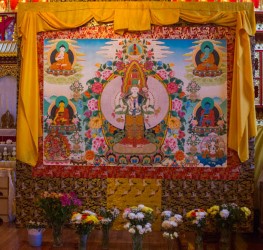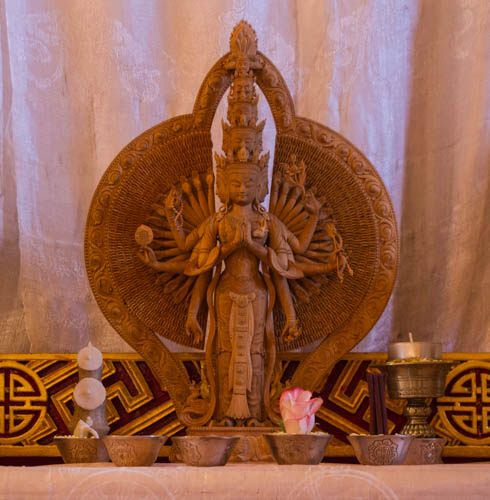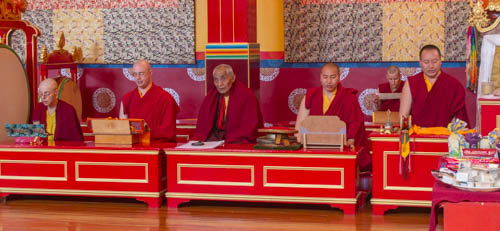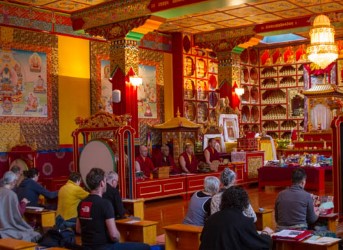
 Since 1979 the Samye Ling Community has welcomed many hundreds of people to the Nyungney Retreat practice of the 1,000-Armed Chenrezig, which is held annually during the auspicious first month of the Tibetan Buddhist New Year.
Since 1979 the Samye Ling Community has welcomed many hundreds of people to the Nyungney Retreat practice of the 1,000-Armed Chenrezig, which is held annually during the auspicious first month of the Tibetan Buddhist New Year.
Nyungneys are a powerful purification practice, with the potential to bring much benefit to those undertaking them, as Akong Rinpoche explains in the following excerpt (unedited) from a talk he gave to the Samye Ling Community at the end of the Nyungney Retreat in 1999:



“To tame and training one’s mind is the most important teaching of Lord Buddha. Not only Lord Buddha, but all religion. And when you are training, when you are tamed your mind, what is the expectation? The expectation is compassion and limitless compassion, not compassion just one’s own body … that’s very little compassions and it’s not deep sense of compassion. Limitless compassion is be able to feel everybody, able to think for everybody and the Mahayana principle of teaching is to everything basis on compassion [and the Mahayana View]. And if you can never able to make this compassion, then that you not practise the Mahayana practice, Mahayana principle. So the compassion and non-compassion depends, say, Mahayana. The limitless compassion is what are aiming for, what we are looking for. When you want to achieve compassion, is to work until you achieve compassion. Quite often, people always say that ‘I done six years’ practice, I done 10 years’ practice. I did not get any result, so I don’t want to do any more practice.”
Now, you practise because you’re not achieve. If you’re achieve already, then why you need to practise? When you see did not had any fruit, did not had any benefit for 10 years, then means you have to put more effort, not less effort. But we give up so funny way! We say ‘This is my expectation and I not able to get there, so now I’m going to give up.’ You have to break this; get out of this … and then you can able to get somewhere. So we practise the Dharma so to overcome the [mind] poisons within ourself and then that’s why that we’re doing the Nyungney practice.
There is so much things we think, like, ‘Now I am so thirsty. Ten o’clock I must have my cup of coffee. I must cup of coffee 12 o’clock; I must have 4 o’clock; I must have this 9 o’clock; 12 o’clock.’
This only kind of imagination – a fantasy – but in the human body itself, it doesn’t need this. Nyungney gives you the idea and appreciation of the food, but normally you don’t appreciate your food. Nyungneys is, part of, to teach us all the things which we are tempted … far as food, far as speech. Nyungneys will teach us to less chatting and to be more mindfulness, whatever that you are doing. And Nyungneys teaches us whatever that people presented to you, we have to learn how to accept this, with thankful, with kindness … much happier.
It’s make you happy because you able to accept whatever is presented to you. It’s make the other people happy that you accepted everything, whatever presented to you. So it make both people happy. When you beyond ‘I like that/don’t like that.’ If you accept it, the enjoyment is there. A simple life is depends on thankful, appreciation, enjoyment, which is a very useful thing to know/to learn. At least one pair Nyungneys is very good, very useful.”
If you have taken Refuge and received the appropriate empowerment and instructions, then you can undertake from two days to 16 days of practice. To enable as many people as possible to take part in this Retreat, accommodation concessions are available for those on low income (please write to the Samye Ling Management Committee if you wish to apply). There is no fee for attending this Retreat.
You cannot copy content of this page